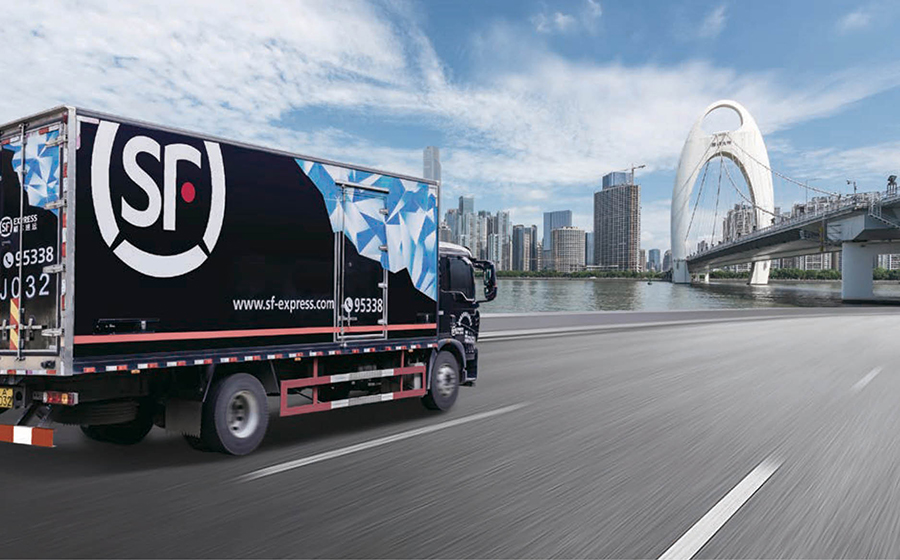E-commerce brands\’ business models are getting more interesting. If you are an investor, these are fundable businesses. The most popular models are direct-to-consumer brands like Warby Parker or Casper; subscription companies like Blue Apron; experiential commerce companies and food delivery companies like Uber Eats.
It\’s no secret that the online marketplace platform business model is challenging. For starters, it can be difficult for direct delivery carriers to differentiate their value propositions. They tend to race to the bottom with low-cost strategies. But keeping costs low requires scale, something that the big online retailers, such as Amazon, are becoming much better at. They can squeeze their way into the delivery and shipping industry at scale to compete directly with entrenched, incumbent delivery companies.
It\’s important to note though, customers can be sensitive to who is delivering their products. If companies do a good job in differentiation by fostering customer loyalty, trust, offering reliability, speed, and convenience to customers, customers can be very loyal to the brand. The notion that as long as the consumer gets their product, they do not care who delivers it, is most often false.
Trouble in Alibaba Paradise
The findings of \”Value of High-Quality Logistics: Evidence from a Clash Between SF Express and Alibaba,\” is relevant to the point of customer sensitivity. The data chronicles the impact of a 42-hour revenue loss in June 2017 when a top delivery company in China on Alibaba\’s website was phased out. SF Express is the Chinese equivalent of FedEx or UPS. We used a DID identification to study how much customers value delivery and how a good delivery can affect an online retailer.
Here\’s the back story. Whenever third-party merchants receive an order from Alibaba\’s platform, they will use third-party carriers like SF to ship out products to customers. These third-party carrier options are displayed on the product pages so that customers have the flexibility and freedom to choose from any available third-party carriers out there. SF is one of the third-party carriers on Alibaba — and it\’s one of the biggest ones.
Alibaba and SF have been close partners for many years, but with Alibaba\’s expansion into the delivery market, it started to have conflicts with shipping companies. For instance, Alibaba had been demanding SF to share its detailed customer-level data with Alibaba. SF deemed this request as irrelevant and refused to share the data. Because of this conflict, in the morning of June 1, 2017, SF suddenly and unexpectedly cut off Alibaba\’s access to all of SF\’s data, perhaps as a warning. A few hours later on the same day, at 6:00PM, Alibaba responded by removing SF as a shipping option from Alibaba\’s retail platform.
The research shows Alibaba\’s retail platform, with a transaction volume three times as large as Amazon\’s, suffered a loss of 14 percent of sales when SF Express was no longer a delivery option for customers. During those 42 hours, Alibaba customers had to use other third-party carriers, and as a result, Alibaba sales dropped because of the lack of access to that trusted shipper.
Soon afterwards, the Chinese government stepped in. The state post bureau of China evaluated the situation and mandated both parties to reach a settlement, for the sake of market order and consumer welfare. As a result, the collaboration between the two was fully resumed at 12:00 PM on June 3rd. The entire event lasted for 42 hours. This is what we called the \”clash.\”
This clash was quite exogenous. Both how it happened and how it ended. It was an unexpected event to all parties involved and no one had enough time to react strategically. During the clash, customers lost access to SF when purchasing on Alibaba, and this caused an actual decline in Alibaba\’s delivery quality.
Delivery Matters
Customers do notice the disappearance of a good delivery company. But instead of delaying their purchases with that retailer, they just purchase from competing online platforms who can ship with the guaranteed delivery of a highly trusted service.
Delivery carriers have tried innovative retention and growth strategies that resemble subscription, direct-to consumer and experiential commerce business models. For example, Uber Eats offers a repeat food delivery service, which is subscription-based. But the challenge remains for carriers to reach a level of such customer loyalty that they are indispensable.
The point is: yes, it is difficult, but innovations in the e-commerce delivery space can be successful. The best advice for delivery companies is this, choose a market that can scale up quickly. Scaling up fast and building high demand can help delivery companies shave cents out of delivery costs, leading to a lower pricing structure. This savings can be passed out to their commerce sellers using their delivery services. This means sellers could offer their products at a cheaper cost, giving them a huge advantage.
And do not turn a blind eye to things like loyalty. Build trust with customers by interacting with them directly. Differentiate your capabilities in reliability, service quality and serving rural areas.
The resumption of SF after the 42-hour clash restored the sales volume back to normal.
Here\’s some background, in China\’s ecommerce market, JD.com is the second largest online retailer with a 20% market share. It has an integrated delivery system that ranks second in customer satisfaction following SF Express. Alibaba was facing a competitor who had a decent delivery service. Intuitively, you would ask did customers possibly switch to JD.com? To test this, we talked with the largest search engine company in China, and we obtained the detailed search data on all of the relevant keywords.
According to our analysis, there was a 23% abnormal increase in the keyword searching for \”JD delivery\” during the clash. Recall that the clash occurred only between Alibaba and SF Express. JD was never involved, but somehow JD\’s delivery this keyword was massively searched right during the clash. It might be the case that customers were disappointed by Alibaba\’s delivery quality, searched JD\’s delivery options and switched to buy from JD who was able to ship with a trusted service.



